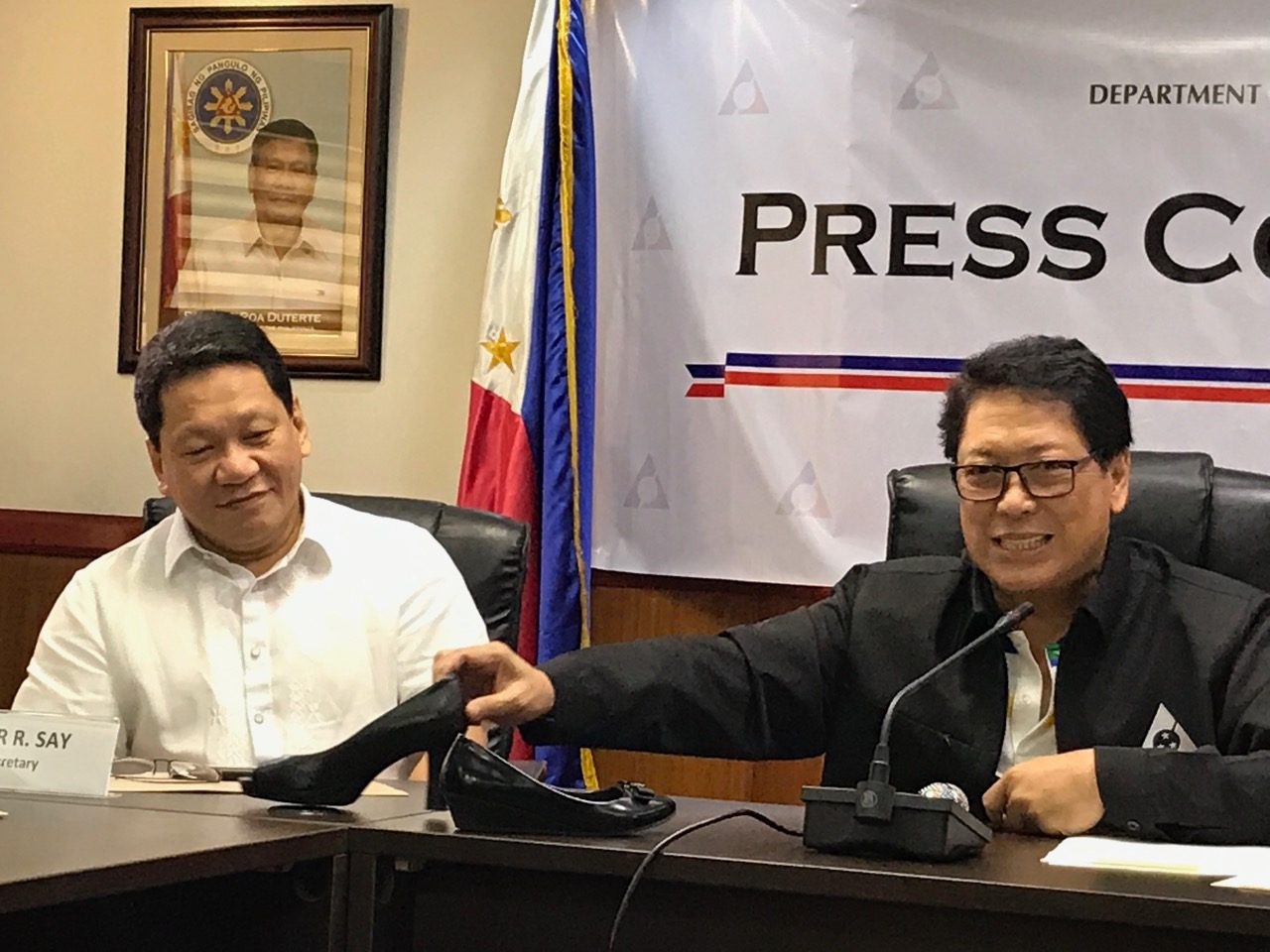SUMMARY
This is AI generated summarization, which may have errors. For context, always refer to the full article.

MANILA, Philippines – The Department of Labor and Employment (DOLE) has ordered business establishments not to require their female employees to wear high heels at work.
Labor Secretary Silvestre Bello III signed the department order on Friday, August 25, following a call from a labor union against the dress code that puts at risk the occupational safety of working women.
“Women will not be obliged to wear high heels,” DOLE Undersecretary Dominador Say said in a mix of English and Filipino.
He said high heels, as defined under the order, are shoes with narrow, pointed heels higher than an inch.
“When we say high-heeled shoes, it is a height beyond one inch. We still allow one inch – there are people who are more comfortable wearing shoes with elevation – but it should be wedge-type shoes, not stilleto,” Say added.
The department order also requires establishments to give “sitting breaks” to both male and female workers, and to provide seats for them.
“They can sit for a short duration so long as it will not have detrimental effects on their productivity,” said Say.
He said the sitting break applies to all industries, and not just those that employ salesladies, flight attendants, and promodizers.
The order will take effect 15 days after publication in a national broadsheet.
Bello said that employers who violate the order may face penalties under existing labor standards, but DOLE would first try to implement the order using a “positive approach.” It would assess what kind of adjustments can be made in the long run.
DOLE will meet with the workers and employers’ representatives in the Tripartite Industrial Peace Council to discuss details on how the order will be implemented.
Health hazards
Ma Teresita Cucueco of the DOLE’s Bureau of Working Conditions said that prolonged standing causes pain and fatigue among workers. The workers can also experience numbness and bloating in their legs.
“Prolonged burden on the joints can cause some problems in the spine, in the lower legs. You can have arthritis, muscular skeletal disorders that can happen,” Cucueco explained.
A review recently conducted by the University of Aberdeen said that there are a number of studies linking high-heeled shoes to risks of injury, postural problems, and bunion formation. It said, however, that it failed to find literature proving that this is associated with osteoarthritis, a degenerative joint disease.
There was a debate on the issue in the United Kingdom inMarch. Some 150,000 individuals signed an online petition asking the government to stop companies from requiring their workers to wear high-heeled shows. The government rejected it for the lack of need to legislate it.
In British Columbia in Canada, women are already free to wear flats at work after the government April prohibited companies from forcing them to wear high heels in April.
The Associated Labor Union, which raised the concern, lauded DOLE’s action.
“With this regulation, millions of Filipino salesladies, promodizers, waitresses, lady guards, receptionists, and those women working in factory assembly lines will now be free from the bondage of unsafe and dangerouns working conditions,” ALU said.
The DOLE will also look into releasing a separate order for workers who have to spend long sitting hours at work like those employed as call center agents. – Rappler.com
Add a comment
How does this make you feel?
There are no comments yet. Add your comment to start the conversation.